We are recognised as authorities in our specialised fields. We publish newsletters with informed opinions that are free for you to subscribe to.
2019 China Insights
2019 is almost at its end, but I have finally found time, in amongst budgets, investment opportunities, preparing for end of the year and then the year ahead… to write about my two trips to China this year.
Events and Celebrations
When there’s a big event, who pays the bill? One of my visits was prior to the 70th National Day celebration and Beijing city covered with flags. The other trip was to Wuhan city, hosting an international sporting event with a super big lighting show on both sides of the Yangtze River. I overheard several conversations on the street questioning who was going to be paying the bill. I’m guessing it’s them – the taxpayers.
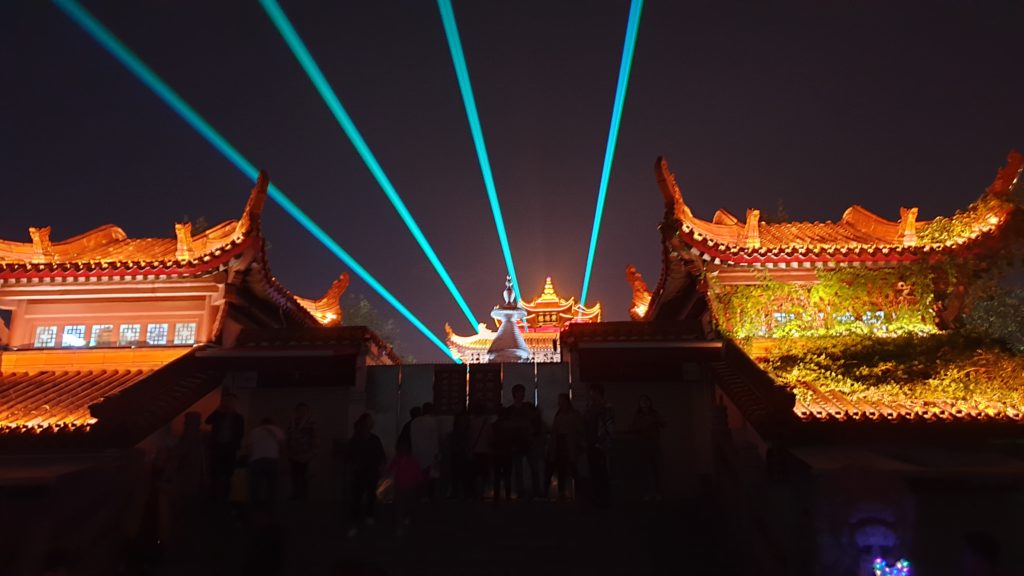
Tourism industry
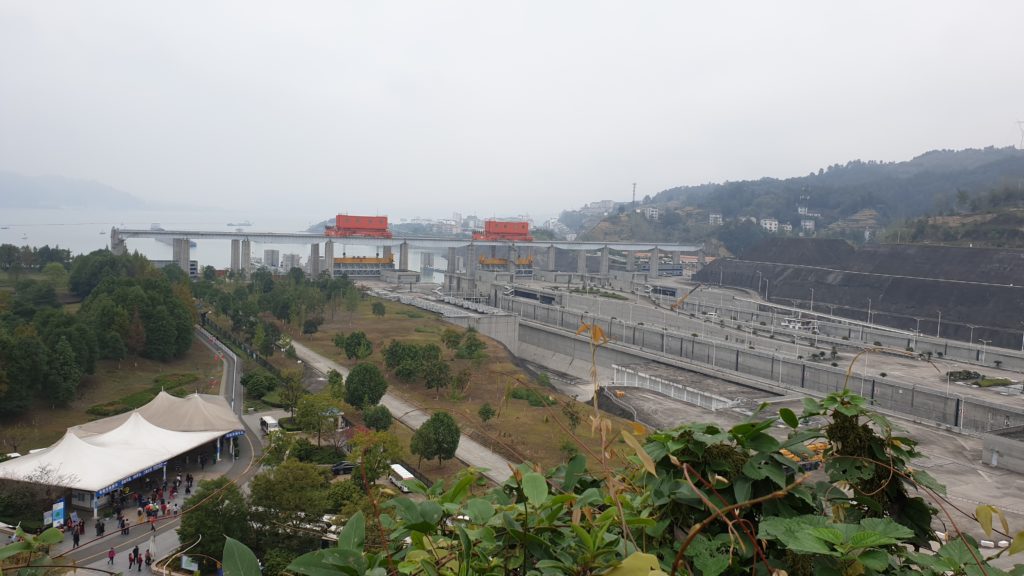
Sightseeing is a big part of China’s tourism industry. To become a ‘sight’, it has to attract attention. It can be a manmade structure, such as a tower like ‘Yellow Crane Tower’ or a group of structures like the Forbidden City or Wu Town; or mountains with temples like ‘EMei Mountain’; or a contemporary project such as the three gorge dam (see photos below) or a panda breeding centre. The sight usually is well known by people through associations with historic importance, books, poems or movies. Once the sight is set, local government, or in some case private entities, will invest in infrastructure to make it comfortable and interesting for people to visit. The top tier sight can accommodate 40,000 people a day, charging RMB 100+ per visit. The daily income is around RMB 4 million per day, and annual income could easily reach RMB 1 billion. Of course this type of sightseeing is based on huge domestic demand, which will last for quite a while.
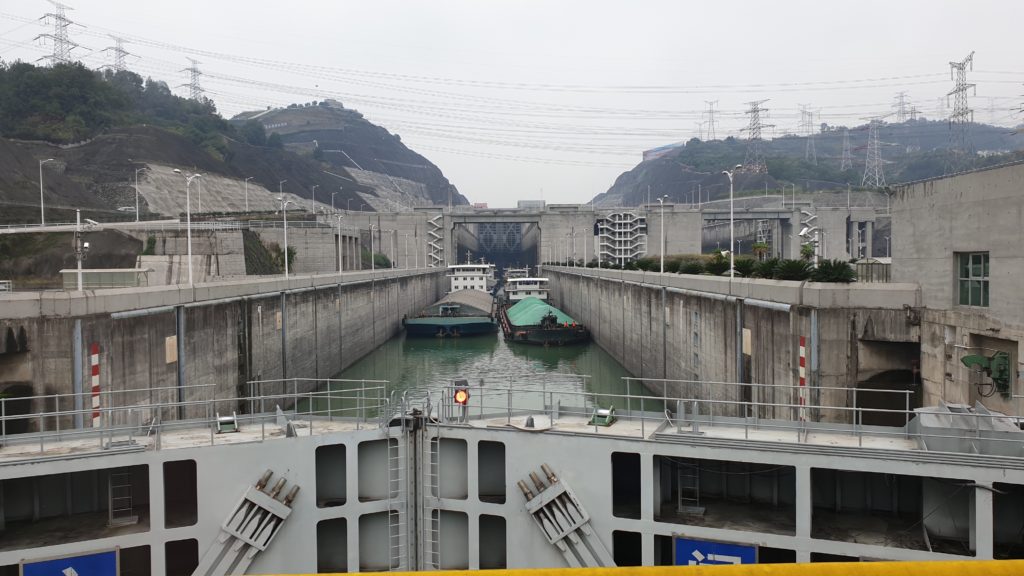
Real Estate Industry
Super cities such as Beijing, Shanghai and Chongqing have completed their development in their CBDs and are now focusing on developing in their suburbs and tidying up. The major projects in suburb development are well planned and no more small players can participate due to very high thresholds and careful partner selection processes. For example, the area called Qiantan in the Pudong District will be developed into a high end commercial area a consortium comprising of the Shanghai Government, a SOE construction contractor, a Hong Kong property operator and an international financier.
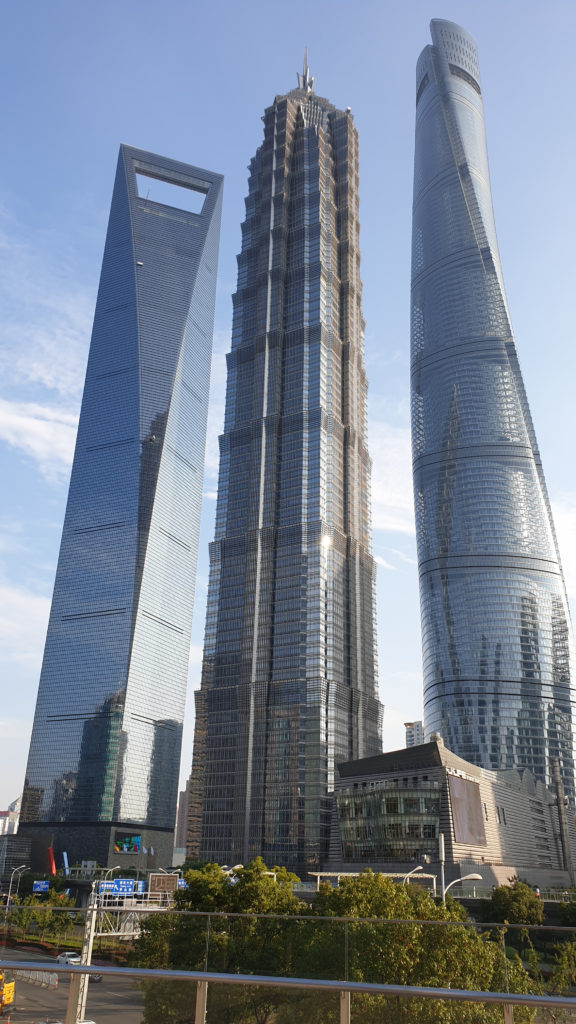
In second tier cities such as Chengdu and Wuhan, new ambitious high rise towers are still emerging but with reluctance and confusion. Greenland Group is developing the highest tower in each of the above cities and recent news indicates financial problems and potential delay of projects. Failed and abandoned projects can be seen in the centre of second tier cities.
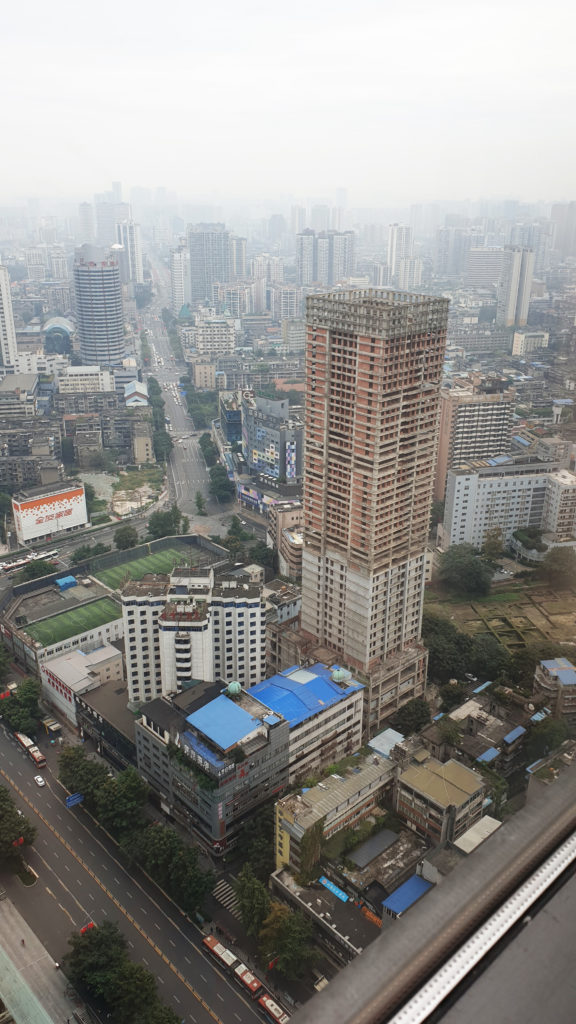
Television and Web Drama Industry
I started to take notice of China’s television and web drama industry about five years ago. A friend of mine investing in this industry updated me briefly and recommended a TV drama ‘Nirvana in Fire’. I was attracted by the very logical and smooth story line; beautiful scenes, costumes and music – and great acting! I’ve never seen a Chinese TV drama at this kind of level. Since then I have watched many others and have come to understand the industry a little bit better.

In the past 30 years, many hard working web writers have supplied the industry with many good stories – these came with heaps of internet followers because they started as a web series. Mao Ni is one of the most successful web writers, with ‘Fighter of the Destiny’, ‘Every Night’ and’ Joy of Life’ made into very popular TV series.

On the producing side, in the past twenty years, almost all Hong Kong and Taiwan industry talent have moved up north to make money in mainland China. They trained the local young generations of producers, actors, actresses and musicians. The younger generation grew from there and made their own name with hard work. The high income of the industry also attracts many young and talented people to study overseas (Korea is a very popular destination) and domestically for performing arts in order to join the industry.
Infrastructure wise, many local governments supported movie and TV cities emerged with comprehensive structures offering historic and naturally beautiful scenes. One of the most successful cities is Heng Dian, a movie/TV city in Zhejiang province.
Web and streaming as a media has also helped the industry get around a very strict Chinese censor system. Airing on traditional TV channels require very strict permits, but streaming on web requires less. So many popular dramas didn’t bother to air through a TV channel. Big streaming names such as WeTV (Tencent), iQiYi (Baidu) and Youku (Ali) help bring the finished results to everyone.
Finally the audience. With 10-20 years of fine-tuned skills, the industry today is quickly expanding to grab global attention. Most TV series will air simultaneously on YouTube for free with instant translation of captions – up to as many as 15 languages. The episodes, its OST (original sound tracks) and trailers being viewed by millions of users from all over the world. The first episode of a series can easily get thousands of comments in many different languages. The dramas and actors/actresses become global sensations.
A typical example is the drama series ‘The Untamed’ which airs this summer on WeTV. It was adapted from a novel called ‘Mo Dao Zu Shi’ by Mo Xiang Tong Xiu. The two leading actors Xiao Zhan and Wang Yibo were unknown, and immediately became famous household names after the show. Xiao Zhan also won ‘Asia’s Most Handsome Man’ and the Golden Tower Award for ‘Best Actor in a Web Drama’.
Tencent’s commercial success in this investment is also noteworthy. Apart from the normal income a web drama can bring in, Tencent has tried some unusual schemes. One of the most controversial is to pay $30 to preview the final several episodes before everyone else. And the income from this only was RMB100 million, with more than three million users who could not resist the temptation because the series was so good.
The other very interesting phenomenon here, is the official endorsement of the drama by Government. The popularity it enjoys globally brings pride and gains face for the Government, because dramas made in China are now competing with Hollywood and Bollywood. The drama that has two boys in love with each other, is stepping over the line as far as Government is concerned, but a blind eye is given because of its international popularity.
Individual Income Tax

The most important thing worth mentioning in 2019 is the new Individual Income Tax (IIT) rule, which started taking effect from 01 January 2019. According to our tax expert in Beijing, Russell Brown, from April to June 2020, 200 million individuals in China will be required to file their income tax return and declare all types of income including those from global sources. The definition of ‘domicile’, which is very critical in assessing an individual’s tax residency in China, will be defined before March 2020 (hopefully). From then on, China will focus on enforcing the compliance of the IIT and non-compliance with no consequence will be history.
If any of these topics have raised questions or you would like to have a discussion with me, please contact me via WeChat.
If you don’t know where to begin, want to talk through something, or have a specific question but are not sure who to address it to, fill in the form, and we’ll get back to you within two working days.
Find out about our team
Look through our articles
Read more about our history
Business Advisory Services
Tax Specialist Services
Value Added Services
Get in touch with our team
Want to ask a question?
What are your opening hours?
AML & CFT Act in New Zealand
Events with Gilligan Sheppard
Accounting software options
Where are you located?
Events

